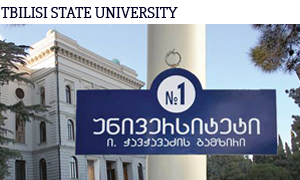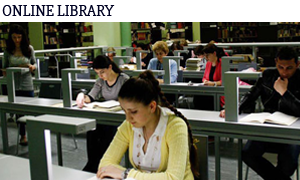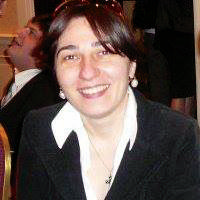
FACULTY OF EXACT AND NATURAL SCIENCES
Muslim Meskhetians – Integration or Separation?
The issue of justice for the Muslim Meskhetians who were deported from Georgia under Stalin’s regime remains a major political challenge for the Georgian state. The country needs political will to respond to this challenge, but also serious research to ensure that justice will be carried out. Ekaterine Pirtskhalava, Doctor of Psychology and Assistant Professor at the Psychology Department of TSU’s Faculty of Social and Political Sciences, has been involved in this research for several years.
The Muslim Meskhetians (or Meskhetian Turks) refer to a local population historically living in the Samtskhe-Javakheti region of Georgia. The Muslim Meskhetians converted to Islam in the16-17th century during the Ottoman occupation of Southwest Georgia. In the 1940s, as a result of Stalin’s social policy to cleanse the southern border of the Soviet Union from “undesirable peoples”, the Muslim populations, predominantly comprised of the Turkish-speaking Meskhetians, were deported from the Caucasus to Central Asia (Kyrgyzstan, Kazakhstan and Uzbekistan). The Muslim Meskhetians had to overcome many obstacles in order to return to their homeland, but only a few have been able to return while most still reside outside of Georgia. After their deportation to the Fergana Valley in Uzbekistan, they were later forcefully relocated to Russia and for years they did not have citizenship or passports. In 2006 the US government to offer asylum to some Muslim Meskhetians and today the repatriation of the Muslim Meskhetians to Georgia is on the agenda of the Georgian Government as well.
 It is important to study issues connected to the integration of the Muslim Meskhetians into the local communities in order to understand how the new environments influence their lives. In 1999 the Institute for Policy Studies (IPS), a Georgian non-governmental organization, carried out research on Muslim Meskhetians under the guidance of researchers Gia Tarkhan-Mouravi and Nana Sumbadze, and the author participated in this project. The author also participated as a social scientist observer in the 2004 study “Meskhetian Turk Integration, Repatriation, Emigration” implemented by European Center for Minority Issues (ECMI) supported by the Volkswagen Foundation. The study was carried out in Georgia, however similar studies were made in other countries where Muslim Meskhetians were deported and currently live--Uzbekistan, Kyrgyzstan, Kazakhstan, Russia, Ukraine, Azerbaijan, Turkey and the USA.
It is important to study issues connected to the integration of the Muslim Meskhetians into the local communities in order to understand how the new environments influence their lives. In 1999 the Institute for Policy Studies (IPS), a Georgian non-governmental organization, carried out research on Muslim Meskhetians under the guidance of researchers Gia Tarkhan-Mouravi and Nana Sumbadze, and the author participated in this project. The author also participated as a social scientist observer in the 2004 study “Meskhetian Turk Integration, Repatriation, Emigration” implemented by European Center for Minority Issues (ECMI) supported by the Volkswagen Foundation. The study was carried out in Georgia, however similar studies were made in other countries where Muslim Meskhetians were deported and currently live--Uzbekistan, Kyrgyzstan, Kazakhstan, Russia, Ukraine, Azerbaijan, Turkey and the USA.
The author also studied the issue of Muslim Meskhetians for the International Center for Minority Studies, carrying out research in nine countries, and based on the Council of Europe’s requirement to adopt the law on repatriation. When the Carnegie Center announced a competition for young researchers in 2011 the author also submitted a project on Muslim Meskhetians since no research had been done on adaptation processes in specific environments. The title of the project was “Meskhetian Turks (Muslim Meskhetians) in the USA and Georgia – Integration or Separation: similarities and differences in a process of adaptation”.
Russian scientists, Elizaveta Koriuchkina and Igor Kuznetsov have published studies on the issue, but they are mostly ethnographies of Meskhetians living in the Krasnodar District of Russia. Georgian scientists Lavrenti Janiashvili, Natia Jalabadze and others are studying the Muslim Meskhetians, but none have considered the Meskhetians living in the United States in their studies.
Research for the Carnegie Foundation was carried out in Georgia, in the village of Abastumani in the Akhaltsikhe district and in the United States, in the cities of Lancaster and Philadelphia in Pennsylvania, in spring 2012. Since it was a comparative study about the influence of two different environments, respondents were selected for in depth interviews who had moved and settled in the United States and Georgia during the same period (2005-2006).


Thirty Muslim Meskhetian respondents (18 women and 12 men) living in Pennsylvania and 19 living in Abastumani, Georgia (14 women and 5 men) participated in the research. Respondents were categorized proportionately by age 15-25, 25-45 and above, because different age groups are influenced differently by their environment.
The key goal of the research was to discuss the process of assimilation and separation under the Gordon model which offers seven stages of assimilation that contribute to adaptation in a new society. These include (1) cultural or behavioural also known as acculturation (2) structural assimilation (3) identificational, (4) marital, (5) attitude receptional, (6) behavior receptional, and (7) civic. Each type of assimilation can, theoretically, vary in degree. These criteria permitted researchers to see how the respondents had adapted to the environment in which they live and how they managed with strategies to adapt, ultimately resulting in ‘assimilation’ or --remaining in a closed group--in ‘separation’.
The two groups differed in their trajectory. Those living in the US and are descendents of some deported to the Fergana Valley in Uzbekistan, then forcefully relocated to Russia, and now reside in the USA as refugees since 2006, and (2) those who have returned to Georgia at their own initiative and expense, when Georgia still had no laws on repatriation.
The research methods used included desk research to analyze legislation, surveys and historical documents related to the migration of Muslim Meskhetians, and field research using in-depth personal interviews and psychological tests in two chosen sites. This research showed whether Muslim Meskhetians accept rules within the social environment and how much this transformation differs in the two countries studied. It also looked at how technological achievements and a new social environment influenced their lives. To do this, the study examined several topics that were analyzed in depth. These issues included family structure, distribution of gender roles, family finances, education, language, marriage and funerals. For example, if all the members of a Muslim Meskhetian family are employed in the United States, regardless of their age and gender, the funds are collected in one “money-box” and basically the mother of the family decides, together with the father, how this money will be spent. In Georgia, usually a man earns money and brings it home where a woman in the family, usually the mother, decides how to spend it.
According to the study, foreign social environments do impact traditional society like that of Muslim Meskhetians, regardless of their traditions. However, social transformation needs time and a community undergoes change according to the social environment in which they live. On the basis of the 2004-2006 research “Meskhetian Turks (Muslim Meskhetians) in the USA and Georgia – Integration or Separation: similarities and differences in a process of adaptation” by ECMI we concluded that Muslim Meskhetians had preserved aspects of their traditions and habits irrespective of which country they lived in, and especially in relation to rituals of marriage and funerals.
Language is a serious problem for Muslim Meskhetians both in Georgia and in the United States. After resettlement from Georgia all of them with secondary and higher education had studied the local language--Uzbek, Kyrgyz, Kazakh--and Russian as an international language. Their knowledge of Georgian language became passive. After deportation, the Turkish Anatolian dialect was considered the lingua franca, and called “Meskhetian brought from motherland”. Today, in the United States most of the women speak English better than the men, since most work in a “service sphere” and have to communicate with locals. Men often work as truck drivers and either do not have to communicate at all, or they work in a Russian-language environment, even in US Within the family they mostly communicate in the Turkish Anatolian dialect . The Muslim Meskhetians living in Georgia encounter a much more serious problem, as few women speak Georgian, and mostly communicate either in Turkish or in the best case, Russian. They do not have to communicate with the Georgian-language environment frequently since none of them work outside the home.
Their past history makes these people concentrate on unity and the preservation of traditions, but their cohabitation within various cultures has also impacted their lives. The influence of new environments is especially notable among Muslim Meskhetians living in North America; relations between the spouses have changed and gender roles transformed. Women make their own contribution to the family budget and even participate in the decision-making processes. Old stereotypes have given way under the influence of the social environment. Also, more attention is paid to women’s education and parents are less involved with influencing their children’s family choices, and funeral rites have undergone certain changes.
The new environment has influenced the lives of Muslim Meskhetians and their habits in both contexts. Some Muslim Meskhetians living in the United States have become citizens, while others are waiting for their citizenship and do not plan to move. Therefore rules dictated by the environment are gradually interiorized so that the culture adapts and can live in this new environment. Yet some rules are preserved in both cohorts: the respect for parents and elders in the family; the superiority of elder people in decision-making; pooling money in the family; and living in extended families.
According to Gordon’s seven stages of assimilation Muslim Meskhetians are not completely assimilated although they are integrated, which means they retain parts of their own culture, whether in the United States or in Georgia. Some of Gorden’s criteria, especially behavioral assimilation, are met, however. The study of how Muslim Meskhetians living in the United States have adapted to life in that country provides insights that will be useful for Georgia in future, particularly for the Ministry for Reintegration Issues. If Muslim Meskhetians return to Georgia, we can better understand what they may need--which languages can be used to communicate and what other possibilities can be put in place to ensure their adaptation and integration.




